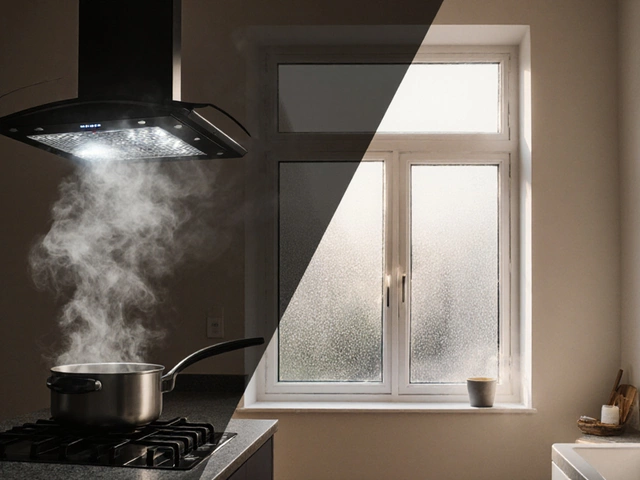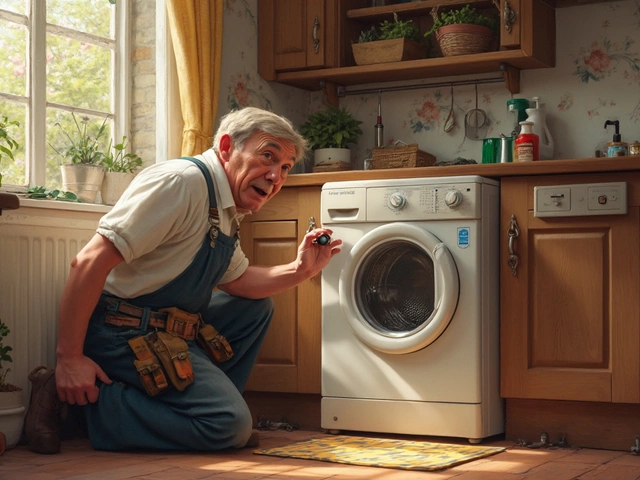Got a cold oven that just won’t heat up? Before you panic and call a technician, take a quick look around. Most electric ovens develop easy‑fix problems that you can spot and sort yourself. A little regular care can stop those annoying breakdowns and keep your roast coming out perfect.
First, listen for clues. If the oven takes forever to reach temperature, the heating element may be failing or the thermostat could be off. Flickering or dim lights inside the cavity often mean a loose wire. Also, check for strange smells – a burnt odor usually points to a damaged element or a buildup of food residue. Write down any odd behavior; it helps you or a pro pinpoint the issue fast.
Start with a deep clean. Grease and crumbs can insulate the element and cause uneven heating. Unplug the oven, remove the racks, and use a soft cloth with mild detergent. For stubborn grime, a toothbrush works wonders on the element’s crevices. Next, inspect the element visually; a broken coil or black spots mean it needs swapping.
Replacing an element isn’t rocket science. You’ll need a screwdriver, a new element that matches your model, and an insulated glove. After unplugging, remove the two screws holding the element, pull it out, and disconnect the wiring cap. Attach the new element, screw it back in, and tighten the cap. Most homeowners finish this in under an hour and save a hefty service fee.
If the oven still won’t heat, the thermostat or the oven control board might be to blame. A quick test is to set the oven to a low temperature (like 100°C) and see if the element glows. No glow? The thermostat may be dead. You can buy a replacement thermostat and swap it the same way you changed the element – just note the wiring order.
Safety first: never work on an oven while it’s plugged in. If you see any frayed cords, cracked insulation, or you’re unsure about wiring, stop and call a qualified electrician. Even though many electric ovens can be fixed by DIYers, an electrician knows the proper codes and can avoid fire hazards.
Regular maintenance saves money and headaches. Schedule a quick check‑up every six months: clean the interior, wipe the door seal, and give the element a visual once‑over. This habit catches wear early, so you won’t be left with a cold oven right before a big dinner.
When you do need a pro, having a clear description of the symptoms speeds up the service call. Mention the temperature you set, how long it took to heat, and any odd smells or noises. Technicians can then bring the right parts – like a new element or thermostat – and fix the problem on the first visit.

Got an electric oven that's not heating? Discover the most common issues, why they happen, and how you can fix or prevent them without calling a pro.

Wondering how often you should replace your extractor fan? This article covers extractor fan lifespan, signs it's time for a change, maintenance tips, and why fresh air matters.

Explore whether you can live without an extractor fan, covering UK regulations, health risks, passive ventilation tricks, dehumidifier use, and when a mechanical fan becomes essential.

In the business world, appliances aren't just about the gadgets in your kitchen; they're tools and strategies central to operations. From simplifying daily tasks to enhancing efficiency, appliances play pivotal roles in various business aspects. Understanding their function means knowing how technology, devices, and smart systems integrate into business to drive productivity. Delving into real-life examples, this article provides insights and tips on leveraging appliances effectively.

Curious how to fix a broken cooker? Explore hands-on steps, common faults, safety tips, and tricks to get your appliance working again—no jargon, just practical advice.

An appliance technician plays a crucial role in keeping household and commercial appliances running smoothly. They diagnose issues, perform necessary repairs, and offer maintenance tips to prevent future problems. Understanding their responsibilities helps in appreciating their importance. This article provides insights into the day-to-day duties of an appliance technician and offers tips for those aspiring to join this field.